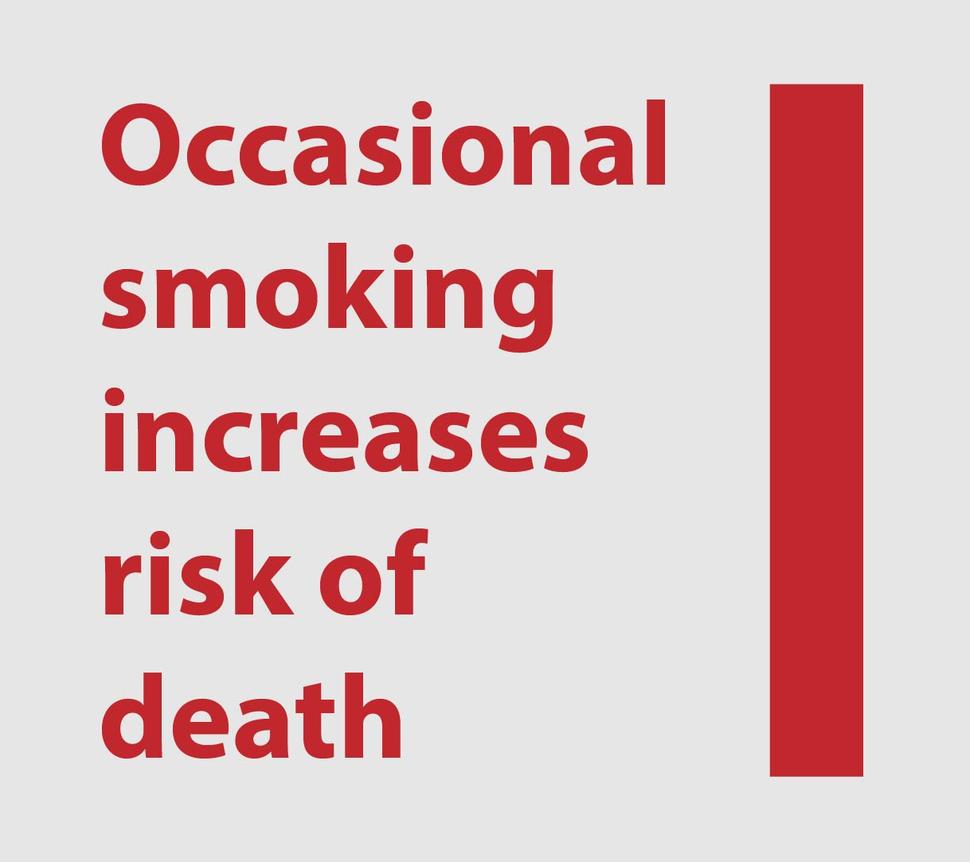Nondaily and Low-Intensity Smoking Associated with Increased Risk of Death
There is a common misperception that nondaily smoking poses little to no risk to health, though emerging evidence suggests otherwise. In a recent study, DCEG investigators found that even low-intensity, nondaily smoking increases risk of death from any cause, compared to both former smokers and never smokers. These findings were published in JAMA Open Network on June 3, 2020.
Maki Inoue-Choi, Ph.D., M.S., R.D., staff scientist in the Metabolic Epidemiology Branch, and collaborators conducted a prospective cohort study using harmonized data from multiple cycles of the Tobacco Use Supplements to the Current Population Survey (TUS-CPS) from 1992-2011, linked to the National Death Index. By evaluating risk of all-cause and cause-specific mortality among nondaily and daily smokers, they found that smokers who reduced from daily to nondaily smoking had lower mortality risks than daily smokers, at a rate comparable to that of lifelong nondaily smokers. However, nondaily smokers still experienced higher risk compared to never smokers and former daily smokers who quit 10 or more years before. Furthermore, higher risk among nondaily smokers was associated with smoking as few as 6-10 cigarettes per month.
The findings of this study provide further evidence that all smokers should quit, regardless of how infrequently they smoke.
Reference:
Maki Inoue-Choi et al. Dose-Response Association of Low-Intensity and Nondaily Smoking With Mortality in the United States. JAMA Open Network. 2020.
